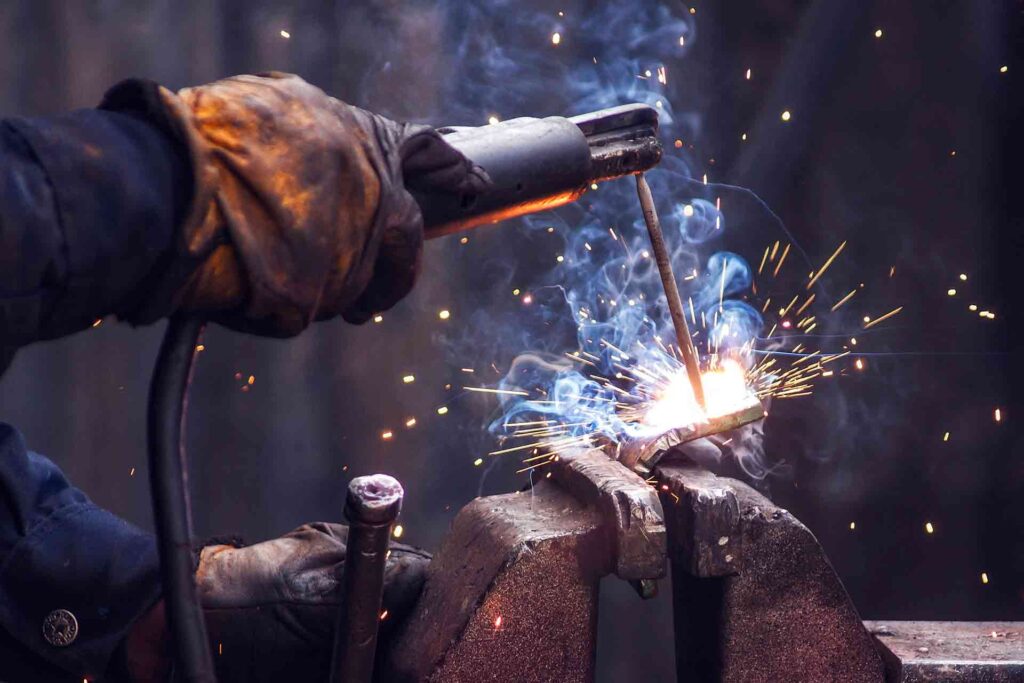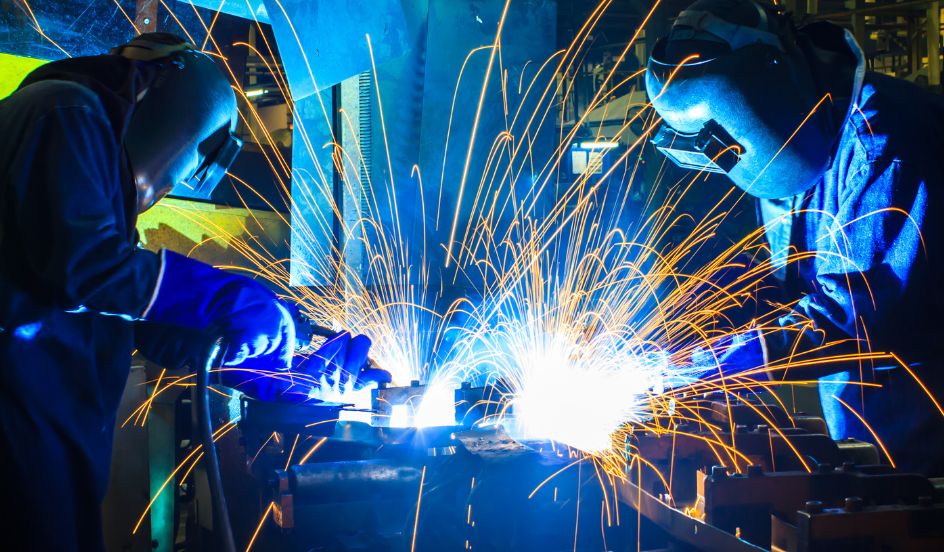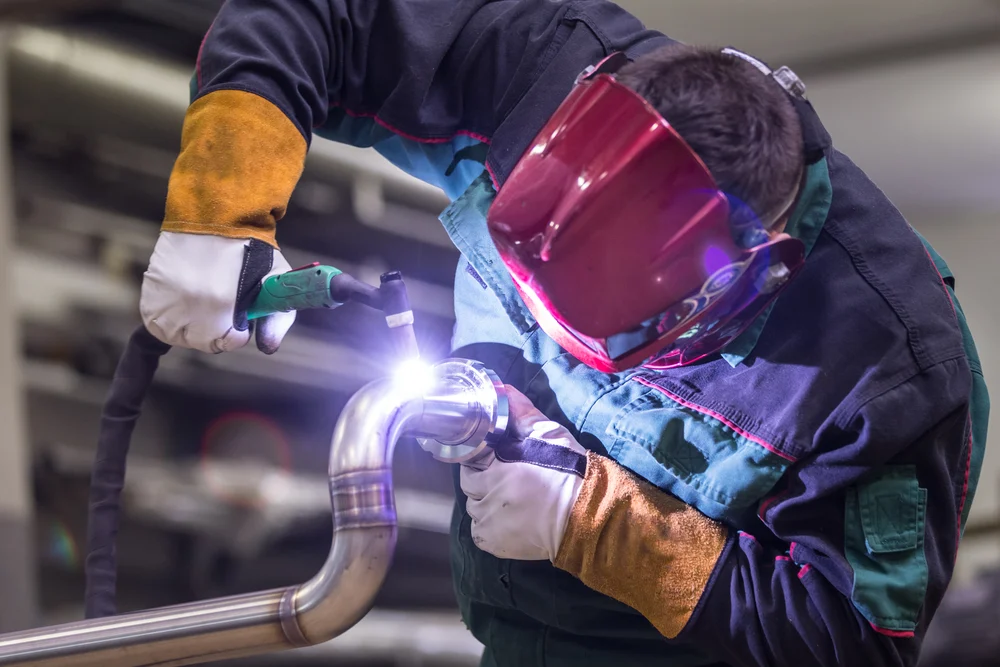Starting a small welding business in Georgia offers a wealth of opportunities. Whether you’re passionate about metalworking or looking to serve a growing local market, welding can be a lucrative venture. In this article, we’ll outline everything you need for a small welding business in Georgia—country or state—giving you the essential steps to succeed in this competitive industry.
Step 1: Research and Planning Your Welding Business

Before you jump into buying equipment or setting up a shop, thorough research and planning are essential to starting your welding business. Here’s how you can begin:
- Market Analysis: Understand the demand for welding services in your area, whether it’s Georgia (USA) or Georgia (country). The demand for welding can come from industries like construction, automotive, manufacturing, and even art. Understanding these sectors will help you identify the opportunities.
- Identify Your Niche: Welding is a broad field, and knowing your specialty will help set you apart. Consider whether you want to offer services in structural welding, custom metal fabrication, mobile welding, or repairs. Tailoring your services to a specific market need is often the best way to stand out.
- Business Model: A shop-based welding business is a common route, but mobile welding—offering on-site services—has grown in popularity. Consider your resources, customer base, and local market before deciding which model suits you best.
Step 2: Legal and Licensing Requirements in Georgia
The legal and regulatory framework surrounding your business will vary depending on whether you’re operating in Georgia (USA) or Georgia (country). It’s crucial to get all necessary permits, licenses, and insurance to run your business legally.
- Registering Your Business: Whether you’re in the U.S. or Georgia, registering your business is a critical step. This includes choosing the correct business structure—LLC, sole proprietorship, etc.—and completing necessary paperwork.
- Permits and Licenses: Each region has different regulations for welding businesses. In Georgia (USA), you might need specific licenses for welding or manufacturing operations. You may also need to obtain environmental permits if you work with hazardous materials.
- Insurance and Liability: As a welding business, you’ll be dealing with high-risk equipment and possibly dangerous materials. Invest in general liability insurance to protect your business and cover potential accidents.
Step 3: Securing the Right Equipment for Your Welding Business
Starting a welding business requires significant upfront investment in equipment. The quality of your tools can affect the quality of your work and your reputation. Here’s a breakdown of essential welding equipment you’ll need:
- Welding Machines: Depending on your services, you’ll need specific welding machines like MIG welders, TIG welders, or stick welders. Be prepared to invest in high-quality equipment to ensure your work meets industry standards.
- Safety Gear: Welding is a hazardous job, so safety is paramount. Ensure you have all the essential safety gear, such as welding helmets, gloves, protective clothing, and respirators. The safety of your team and customers should always be a priority.
- Workstations and Tools: You’ll also need a well-organized workspace and the necessary tools for welding, cutting, and fabrication. Secure work tables, clamps, grinders, and other hand tools for precision work.
Step 4: Setting Up Your Business Location
The location of your welding business is a key factor that will influence your overall success. Here are some things to consider when setting up your shop:
- Finding the Right Location: Choose a location that is easily accessible to your customers while keeping costs in mind. Your welding business will need adequate space to accommodate large equipment and storage. If you’re focusing on mobile welding, you’ll need to consider vehicle storage and mobility.
- Zoning and Regulations: Make sure your location complies with local zoning regulations. Certain areas may have restrictions on noise or hazardous materials, which could affect your operations.
- Mobile Welding Business: If you plan to run a mobile welding business, think about what it will take to make this a successful model. Investing in a fully equipped mobile unit that can handle all your welding tasks on the go will make you more versatile and able to serve clients at their locations.
Step 5: Marketing and Growing Your Welding Business

Once your business is up and running, it’s essential to establish a strong marketing plan to attract customers. Effective marketing will help you build a reputation and drive traffic to your business:
- Online Presence: Having an online presence is critical. Build a website that showcases your services, offers client testimonials, and provides an easy way for potential clients to contact you. Social media platforms like Facebook, Instagram, and LinkedIn are also great ways to connect with your audience.
- Local Advertising: In addition to online efforts, focus on local advertising. Billboards, flyers, and partnerships with other local businesses can help spread the word about your welding services.
- Networking: Join local business networks, attend trade shows, and get involved in the local community to create strong connections and establish your reputation as a trusted welding provider.
Step 6: Managing Finances and Scaling Your Business
Managing finances effectively is essential to running a successful business. Here are some steps to ensure your welding business remains financially stable and ready to grow:
- Budgeting and Financial Planning: Keep track of your expenses and revenue to ensure profitability. Factor in costs for materials, equipment maintenance, wages, insurance, and advertising.
- Accounting Tools: Use accounting software to streamline invoicing, bookkeeping, and tax filing. Make sure you’re compliant with any tax regulations related to your business operations.
- Scaling Your Business: As your business grows, consider adding employees or expanding your range of services. Whether it’s opening a second location or adding new welding machines, scaling your operations will be key to long-term success.
FAQs about What You Need for a Small Welding Business in Georgia
1. What is the first step in starting a welding business in Georgia?
The first step in starting a welding business in Georgia is to conduct thorough market research and planning. Understanding the demand for welding services in your area, identifying your target market, and deciding on your business model (e.g., shop-based or mobile) are crucial for setting a solid foundation.
2. What legal requirements do I need to fulfill to start a welding business in Georgia?
To start a welding business in Georgia (USA or country), you must register your business with the appropriate local authorities. Additionally, ensure you obtain any necessary licenses and permits, such as environmental and safety permits if your business deals with hazardous materials. You will also need general liability insurance to protect your business from potential accidents.
3. Do I need special permits or certifications to operate a welding business in Georgia?
Yes, you may need specific permits or certifications depending on the type of welding services you plan to offer. For instance, if you’re working in industrial settings, you may need to meet OSHA (Occupational Safety and Health Administration) standards. In Georgia (country), you’ll need to check with local authorities for any required certifications or operational permits.
4. What kind of equipment is required to start a welding business?
Starting a welding business requires a variety of equipment. Essential items include welding machines (MIG, TIG, or Stick welders), safety gear (gloves, helmets, protective clothing), workstations, and hand tools like grinders and clamps. The type of equipment you purchase will depend on the specific welding services you plan to offer.
5. Do I need a physical location for my welding business?
While some welding businesses operate out of a physical shop, others may choose a mobile model that allows them to offer on-site welding services. If you opt for a physical location, ensure it complies with local zoning laws and has enough space for your equipment. For a mobile business, investing in a fully equipped vehicle is necessary.
6. How do I market my small welding business in Georgia?
Marketing your welding business effectively involves building an online presence through a website and social media platforms like Facebook and Instagram. You should also focus on local advertising, including flyers, business cards, and word-of-mouth referrals. Networking within the local business community can also help build your reputation.
7. What are the most common challenges when starting a welding business?
Common challenges include managing startup costs for equipment and location, finding reliable customers, and staying competitive in the industry. Additionally, ensuring compliance with safety standards and local regulations can be time-consuming but is necessary for long-term success.
8. How much capital do I need to start a small welding business in Georgia?
The initial capital required depends on the type of welding services you plan to offer and the scale of your business. You’ll need to account for the cost of welding equipment, safety gear, location (if applicable), and any necessary legal fees. Generally, expect to invest between $10,000 to $50,000 to cover these essentials.
9. How do I scale my welding business once it’s up and running?
Scaling your welding business involves increasing your customer base, expanding your services, or hiring employees. You may consider offering additional welding techniques or expanding into other industries, such as construction or automotive. Also, improving your marketing strategy and investing in advanced equipment can help your business grow.
10. Is it necessary to have experience in welding to start a business in Georgia?

While experience in welding is highly beneficial, it is not a strict requirement. However, having the necessary skills and certifications will make your business more credible and help you provide high-quality services. Many welding entrepreneurs start by working for a company to gain hands-on experience before venturing into business ownership.
Conclusion
Starting a welding business in Georgia, whether in the USA or Georgia country, can be an exciting and profitable venture. By following these essential steps—researching the market, meeting legal requirements, investing in quality equipment, and marketing effectively—you’ll be well on your way to building a successful and sustainable business.
Remember, hard work and dedication, paired with a solid plan, are the keys to making your small welding business thrive. If you’re ready to get started, take action today and watch your welding business grow!









